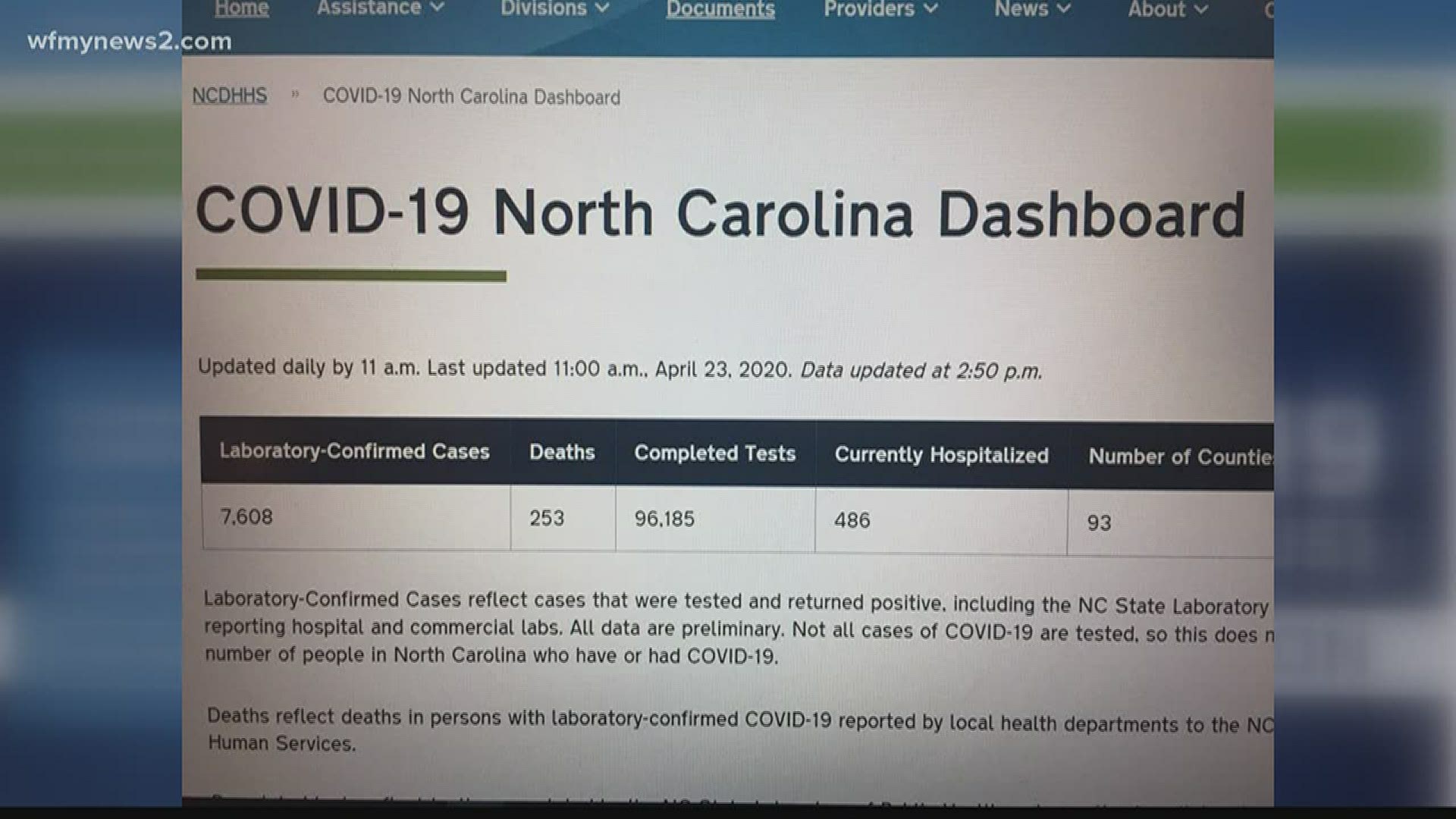GREENSBORO, N.C. — North Carolina Gov. Roy Cooper said Thursday that the state's stay-at-home order from COVID-19 will remain in place for at least another two weeks.
Governor Cooper said he extended the order because current data doesn’t support loosening restrictions that began in mid-March.
North Carolina's initial stay-at-home order was supposed to expire next week, on April 29 but that, and other prohibitions on dine-in restaurant services and mass assemblies, has now been extended until May 8.
That date is very much on track with national projections models which have indicated that North Carolina might be able to relax restrictions around the second week of May.
Modeling released last Friday by the University of Washington suggested that North Carolina may have reached its peak in coronavirus cases in the last few days, suggesting restrictions can be relaxed as soon as May 11 if sufficient testing is conducted, large gatherings are limited, and other provisions remain in effect.
RELATED: Gov. Cooper announces 3-part plan to reopen state, extends stay-at-home order through May 8
Other models are less optimistic and put the timeline towards the end of June into July.
Medical experts tracking and treating coronavirus said social distancing efforts have slowed the spread of coronavirus, allowing the state to beat the projections.
"Social distancing, shelter-in-place has helped. Now, the trick is to figure out how to continue to get back out there and do business without endangering the health of the public, but it's a balance," said Dr. David Priest of Novant Health.
"While the peak was predicted these last couple of weeks, because we took steps to prevent, it wasn't as much as we expected, said Dr. Priest who urged vigilance.
According to the North Carolina Department of Health and Human Services, as of Thursday, April 23, there were 7,608 coronavirus cases, 253 deaths, and nearly 500 critically ill in the hospital.
"We may get smaller hills as the months go by it would have to be careful as we work towards reopening the economy to not do it too quickly," added Priest.
Experts say that the number of confirmed cases likely significantly underestimates the true spread of the virus because of testing limitations. They warned that without additional containment strategies like testing, contact tracing, and isolation, North Carolina risks a surge.
"What we need to do very efficiently is identify people who are at risk of being infected, that have been in contact with people who have had symptoms, or a positive test, and then rapidly be able to test those people to cut down on the spread very quickly," said Dr. Michael Gunn of Duke University.
"In the current form, [tests] are almost exclusively laboratory-based but moving forward it's best we take tests out to the point of care to allow much more widespread and easier testing," added Dr. Gunn.
Medical experts were concerned lifting the North Carolina stay-at-home order at the end of April would've resulted in more deaths and infections and overwhelmed hospitals.


